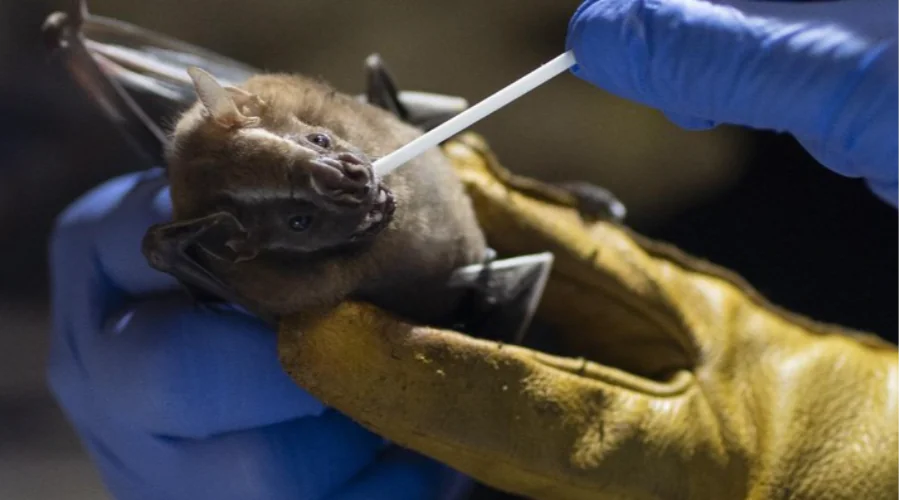
- 30 May
- 2022
Foto AP/Silvia Izquierdo (CNBC)
UM Faculty of Medicine Lecturer in Surabaya: Prevent the Spread of the Hendra Virus in This Way
The world is again shocked by the emergence of a new virus, namely the Hendra virus (HeV). Even though the Covid-19 pandemic is not completely over.
HeV was first discovered in 1994 from specimens obtained during an outbreak of respiratory and neurological disease in horses and humans at Hendra, a suburb of Brisbane, Australia.
Yuli Wahyu Rahmawati, a lecturer at the Faculty of Medicine (FK) UM Surabaya, who is also a dermatovenereologist, explained that the Hendra virus is caused by the previous Hendra virus, or what is called the Equine Morbillivirus, which belongs to the Genus Henipavirus and the family Paramyxoviridae.
"The Hendra virus can be transmitted from natural hosts of flying fox bats of the genus Pteropus to other animals and to humans (zoonosis). Transmission of the Hendra virus to humans can occur after exposure to bodily fluids and tissues or horse feces infected with the Hendra virus," said Yuli, Monday (30/5/22)
According to a written statement, Yuli explained that horses can become infected after being exposed to the virus in the urine of infected flying foxes.
While the clinical symptoms of Hendra virus are after 9-16 days of incubation, patients will experience respiratory tract infections such as fever, cough, sore throat. In some cases develop into fatal encephalitis. Although this disease is rare, the case fatality rate (CFR) in humans is relatively high, namely 57%. Definitive diagnosis of Hendra virus disease through RT-PCR laboratory examination.
"There is no vaccine or specific treatment for this virus yet, so treatment is symptomatic and supportive, but there are several ways that can be done as prevention," explained Yuli.
According to him, implementing clean and healthy living behaviors such as washing hands, consuming balanced nutrition, getting enough rest, coughing and sneezing etiquette to avoid hunting wild animals needs to be done.
First, avoid contact with farm animals (such as horses) that may be infected. In case of contact use personal protective equipment. Symptoms in infected animals include respiratory tract and neurological such as fever, difficulty breathing, ataxia.
"Consume cooked meat and don't eat fruit products directly from the tree because bats can be contaminated," he added.
Next is not to add fruit plants as a food source for bats around the farm. Thoroughly wash and peel fruit and any fruit with bat bite marks
For health workers, apply infection prevention and control. Avoid direct contact with people who are suspected or infected, including their body fluids.
Yuli explained that so far there have been no cases of Hendra virus disease in humans or livestock in Indonesia. However, based on bat serology studies, it was shown that as much as 22.6% of Pteropus Vampyrus bats in West Kalimantan and as much as 25% of P. Alecto in North Sulawesi contained antibodies against Hendra virus.










(0) Comments